Even when working the dreamiest of dream positions, it’s not realistic to love our jobs every single day. There’s a level of tedium and monotony in every profession, which sometimes makes us frustrated with capitalist society. And this aggravation must be vented, or otherwise it will accumulate and crush our souls.
The people in the list below did just that and felt infinitely better. Scroll down to find some of the most brutally honest anti-work posts they shared, and don’t forget to upvote the ones you positively agree with.
While you're at it, make sure to check out a conversation with Dr. Sharon Grossman, psychologist and executive coach at Turnkey Retention Solutions, and Helen Lawson Williams, founder of TANK - ending burnout, who kindly agreed to share their best tips on how we can enjoy work more.
#1

Image credits: Adjective_J
#2

Image credits: _antiwork
#3

Image credits: RaggedTP
Dr. Sharon Grossman, psychologist and executive coach at Turnkey Retention Solutions, explains that people started embracing the anti-work culture that all these posts are a part of because "work doesn't work anymore. The anti-work movement isn't about laziness. It's a wake-up call about broken workplace cultures."
She further explains that employees are tired of the "hustle culture" masquerading as ambition and status mattering more than mental health. "Work is eating up people's resources so much that there's not enough energy or time left for the 'life' part of the equation."
Instead, people want a sense of purpose and flexibility, not just a paycheck, she says. "This isn't a perk, it's really non-negotiable."
#4

Image credits: JYSexton
#5

Image credits: DasaniWThaDrip
#6

Image credits: MorePerfectUS
"The anti-work movement is a response to the feeling that the time and effort that goes into a lot of jobs isn’t fairly rewarded," Helen Lawson Williams, founder of TANK - ending burnout, adds.
"Pay in many fields has stagnated or declined in real terms, conditions have eroded, and job security feels like a very last-century concept. When people feel like they’ve been treated unfairly - when their work isn’t appreciated and their employers are hoarding the value they create - they get angry. That’s anti-work."
#7

Image credits: jjfitzgeraldMD
#8

Image credits: _antiwork
#9

Image credits: _antiwork
Those who feel unhappy with their jobs commonly lack fairness, recognition, resources, and advancement and have micromanaging bosses, says Dr. Grossman, explaining it further below:
- Lack of recognition: Many managers feel like they don't need to appreciate their employees because "that's their job." But people like to feel seen.
- Lack of advancement: People want to have a career trajectory. They don't want to stay stuck where they are. If they see they've hit a ceiling, they'll go elsewhere.
- Micromanaging boss: If you display behaviors like micromanagement or lack of delegation, it delivers the message that you lack trust in your employees. No one likes to be on the receiving end of that.
- Lack of resources: If you're expected to do your job, but you don't have sufficient resources with which to do it, you're going to burn out.
- Lack of fairness: If people are promoted unfairly or your voice isn't being listened to or downplayed, this will lead to a toxic culture. Companies need to strive to create psychological safety.
#10

Image credits: frankieboyle
#11
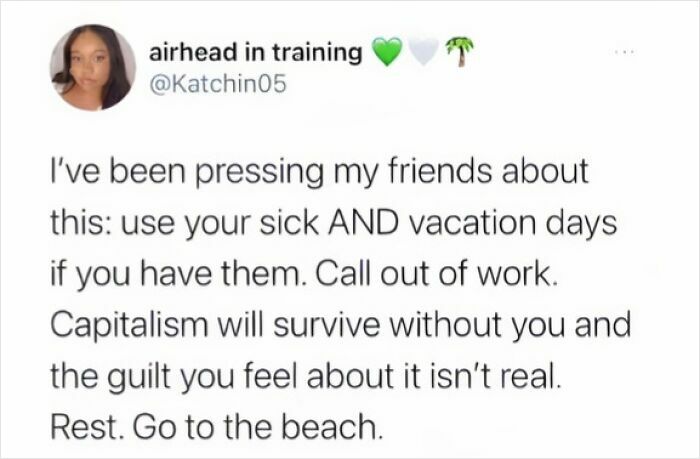
Image credits: stayathomesocialworker
#12

Image credits: _antiwork
Williams additionally notes that job dissatisfaction is closely related to the people in our work environment. "We’re social creatures. We live or die by how well we’re supported by, and how much we can contribute to, our social groups. Given how much time we spend there, work is a really important social group," she says.
"If your work has you doing things that aren’t meaningful to you (or worse, are against your values), among people who transparently don’t care about you, you’re very unlikely to be happy. And that’s exactly what we're seeing. Employee engagement is at an all-time low because very few people can get engaged in work that’s purely transactional."
#13

Image credits: existentialcoms
#14

Image credits: _antiwork
#15

Image credits: _antiwork
In order to find more enjoyment in our work, Williams suggests putting hard boundaries around it so there's time for enjoyment outside work. "There are probably small things you can do to improve work, e.g., finding at least one friend you can have a laugh with, but the key skill in this situation is being able to switch off and leave work at work," she says.
#16

Image credits: _antiwork
#17

Image credits: _antiwork
#18
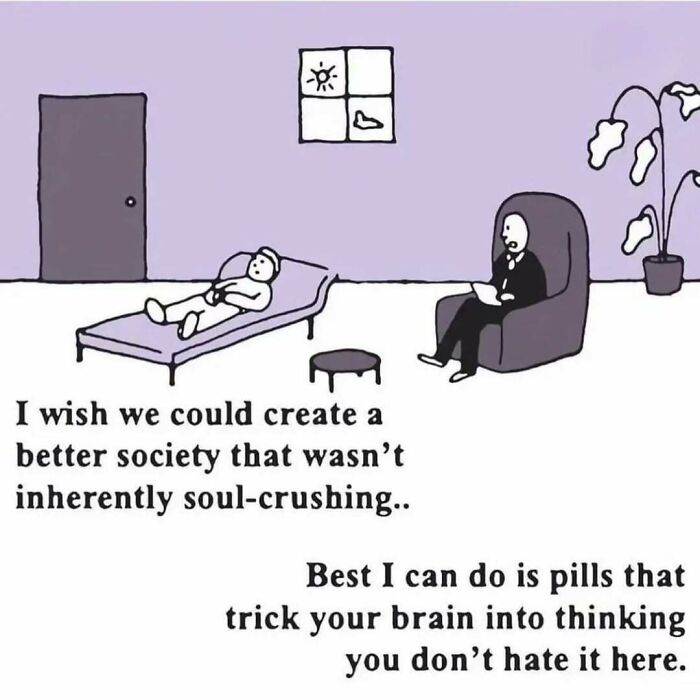
Image credits: _antiwork
"If you do have a bit of a financial buffer, or options in the job market, take a half hour to do two things: assess your values (we have a tool to help: https://values.thisisyourtank.com/ ) and work out what you could be doing to get your work better aligned with them. Pulling against your values is exhausting, and if your workplace is full of people who hold values that are opposed to yours, you’re going to find it really hard to connect with them. Consider whether a different team, a different workplace, or a different career might put you in a better place to do something that’s really meaningful to you, with people you enjoy being around," Williams further suggests.
#19

Image credits: existentialcoms
#20

Image credits: _antiwork
#21

Image credits: _antiwork
Meanwhile, what workplaces can do to improve employees' job satisfaction is "create a culture of recognition and appreciation, create opportunities for team building, and carefully match tasks to individual strengths while also providing their teams with sufficient resources to get the job done," says Dr. Grossman.
"People find satisfaction in their work when they connect with their manager and their coworkers, when they feel a sense of purpose in their work, and when they are challenged, but not overwhelmed by the demands."
#22

Image credits: _antiwork
#23

Image credits: stayathomesocialworker
#24

Image credits: stayathomesocialworker
"Workplaces could start by recognizing that people work best when they feel valued and supported," seconds Williams. "Even the most boring, repetitive jobs can be meaningful and create a sense of connection if they’re done collaboratively and it’s clear what larger goal they contribute to. Workplaces that reward performative busyness so that everyone feels under constant time pressure rarely realize that what they’re sacrificing is creativity, meaning, and connection. You can’t build any of those things when people are constantly at their limit," she concludes.
#25

Image credits: _antiwork
#26

Image credits: yayarea22_eth
#27

Image credits: missmayn
#28

Image credits: _antiwork
#29

Image credits: _antiwork
#30

Image credits: Wendigoon8
#31

Image credits: _antiwork
#32
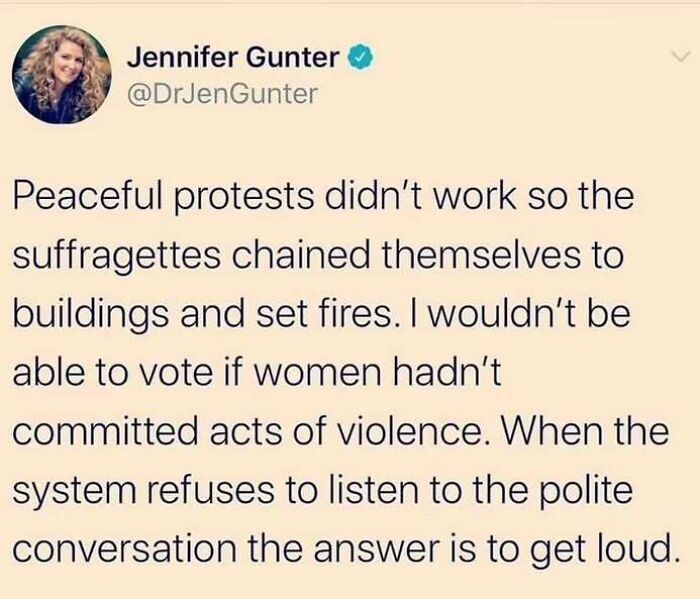
Image credits: _antiwork
#33

Image credits: _antiwork
#34

Image credits: stayathomesocialworker
#35

Image credits: _antiwork
#36

Image credits: _antiwork
#37

Image credits: _antiwork
#38

Image credits: _antiwork
#39

Image credits: _antiwork
#40

Image credits: _antiwork
#41

Image credits: SouthanBelle
#42
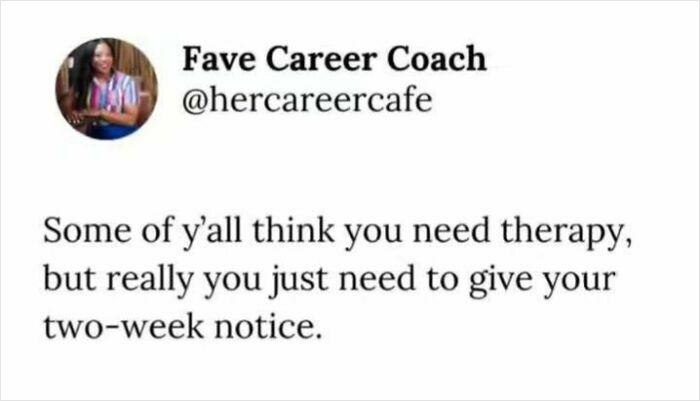
Image credits: stayathomesocialworker
#43

Image credits: _antiwork
#44

Image credits: _antiwork
#45

Image credits: _antiwork
#46

Image credits: _antiwork
#47

Image credits: _antiwork
#48

Image credits: _antiwork
#49

Image credits: _antiwork
#50

Image credits: stayathomesocialworker
#51

Image credits: _antiwork
#52

Image credits: _antiwork
#53

Image credits: _antiwork
#54

Image credits: themermacorn
#55

Image credits: _antiwork
#56

Image credits: _antiwork
#57

Image credits: _antiwork
#58
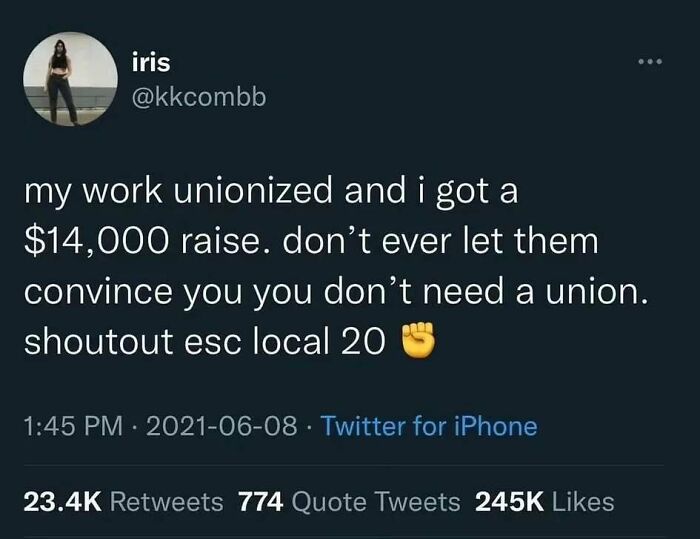
Image credits: _antiwork
#59

Image credits: _antiwork
#60

Image credits: stayathomesocialworker
#61

Image credits: stayathomesocialworker
#62

Image credits: _antiwork
#63

Image credits: _antiwork
#64

Image credits: _antiwork
#65

Image credits: _antiwork
#66

Image credits: _antiwork
#67

Image credits: _antiwork
#68

Image credits: _antiwork
#69

Image credits: _antiwork
#70

Image credits: _antiwork
#71

Image credits: _antiwork
#72

Image credits: _antiwork
#73

Image credits: _antiwork
#74

Image credits: _antiwork
#75

Image credits: _antiwork
#76

Image credits: _antiwork
#77

Image credits: stayathomesocialworker
#78

Image credits: _antiwork
#79

Image credits: stayathomesocialworker
#80

Image credits: _antiwork
#81

Image credits: _antiwork
#82

Image credits: _antiwork
#83

Image credits: stayathomesocialworker
#84

Image credits: stayathomesocialworker
#85

Image credits: stayathomesocialworker
#86

Image credits: _antiwork
#87

Image credits: _antiwork
#88

Image credits: _antiwork







